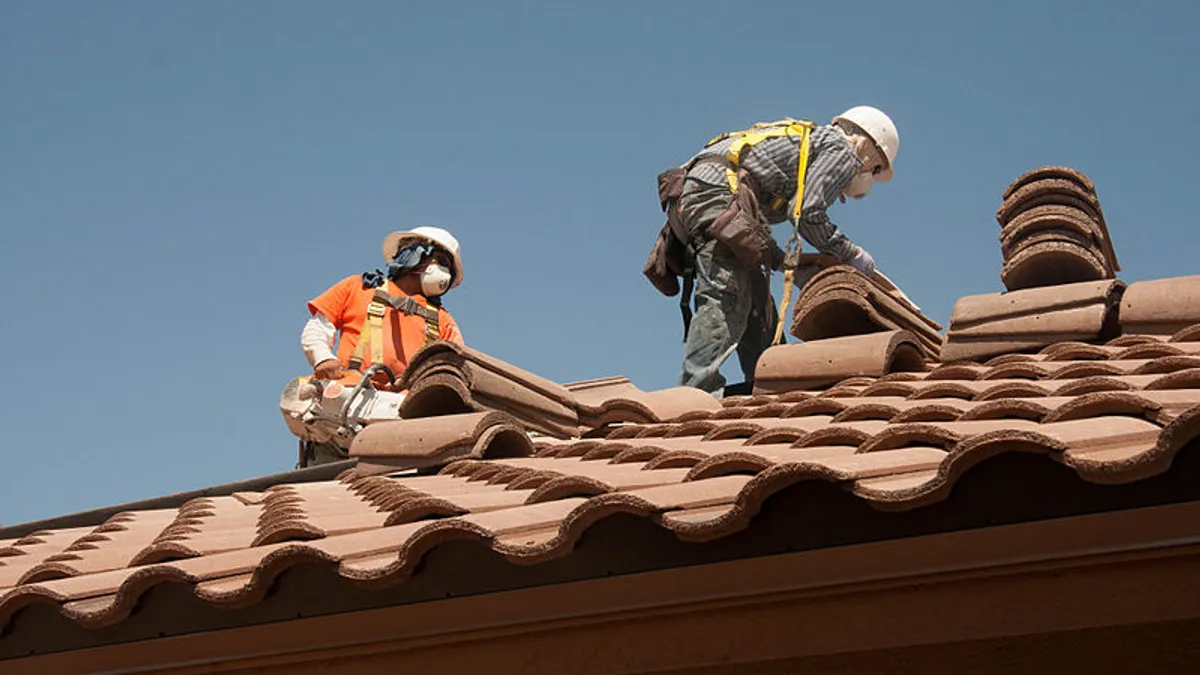Dive Brief:
- Of the 20 professions least likely to have health insurance, 11 of them are in the construction industry, according to MarketWatch.
- The average uninsured rate for fulltime workers in the U.S. is 12%, but the percentage of certain categories of construction workers without health insurance is much higher, including roofers (50.5%); drywall hangers, finishers and ceiling tile installers (49.5%); plasterers and stucco masons (49.1%); fence installers (45.7%); carpet, tile and floor installers (45.2%); painters and paperhangers (43.1%); construction trade helpers (42.8%); installation, maintenance and repair helpers (40.5%); cement masons, concrete finishers and terrazzo workers (38.7%); brick masons, block masons, stonemasons and reinforced iron and rebar workers (38.6%); and construction laborers (37.5%)
- At least some of the workers who reported not having health insurance coverage could be classified as independent contractors, which means that they are operating as a business and not entitle to benefits from another employer.
Dive Insight:
In most states, companies are required to carry workers' compensation insurance so that if a worker is injured on the job, medical bills, partial salary, rehabilitation costs and training for a new trade, if necessary, will be paid regardless of whether the injured person has health insurance. However, is the worker is classified as an independent contractor or contract worker, then he or she is not covered by this benefit.
And, according to the Workers Defense Project, the southern U.S. is the region most likely to have construction workers laboring as independent contractors.
As part of its study, the Workers Defense Project reported that only 5% of the 1,435 workers it interviewed in six southern states said workers' compensation would cover the cost of their work injuries, and 57% said they earned less than $15 an hour.
In Houston, specifically, 40% of construction workers interviewed had no health insurance, retirement savings, paid vacations or sick leave. More than 30% said they did not have breaks during the day and that their employer did not provide drinking water on the jobsite.
The U.S. Department of Labor and Internal Revenue Service have requirements for independent contractors, and employers that misclassify employees as contract labor could face penalties from both agencies. Generally, independent contractors offer their services to the public. In addition, in an independent contract relationship, the employer has a say in the end product but not how the independent contractor achieves it, for example, by dictating hours spent on the job.












